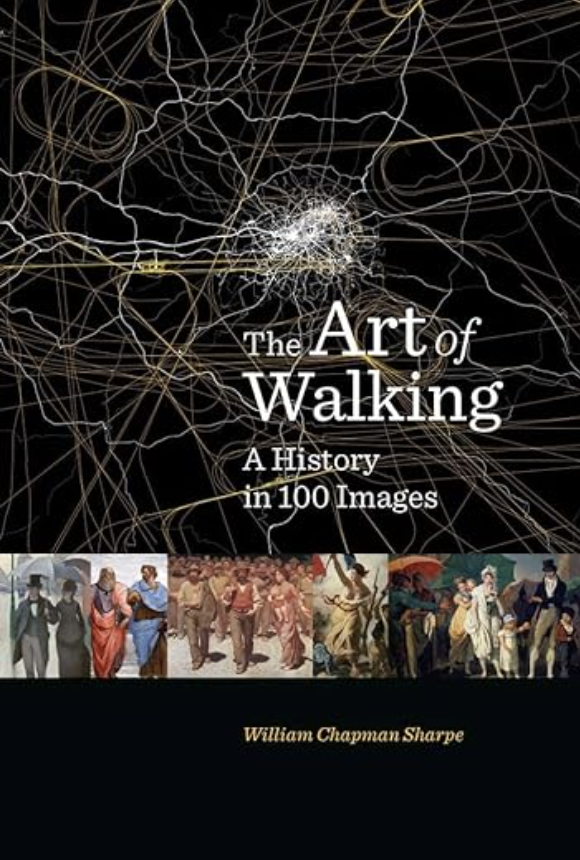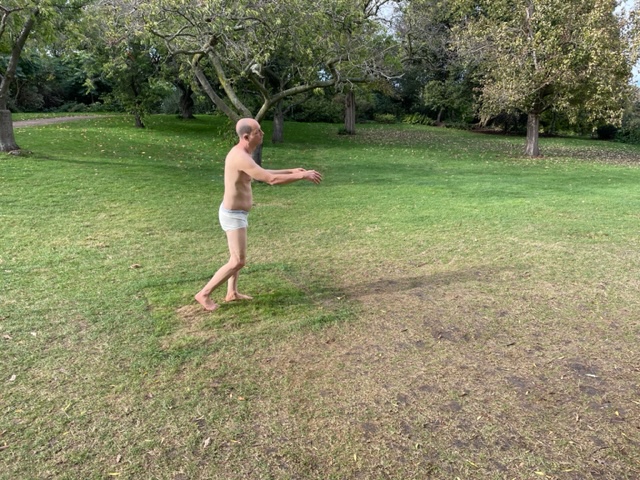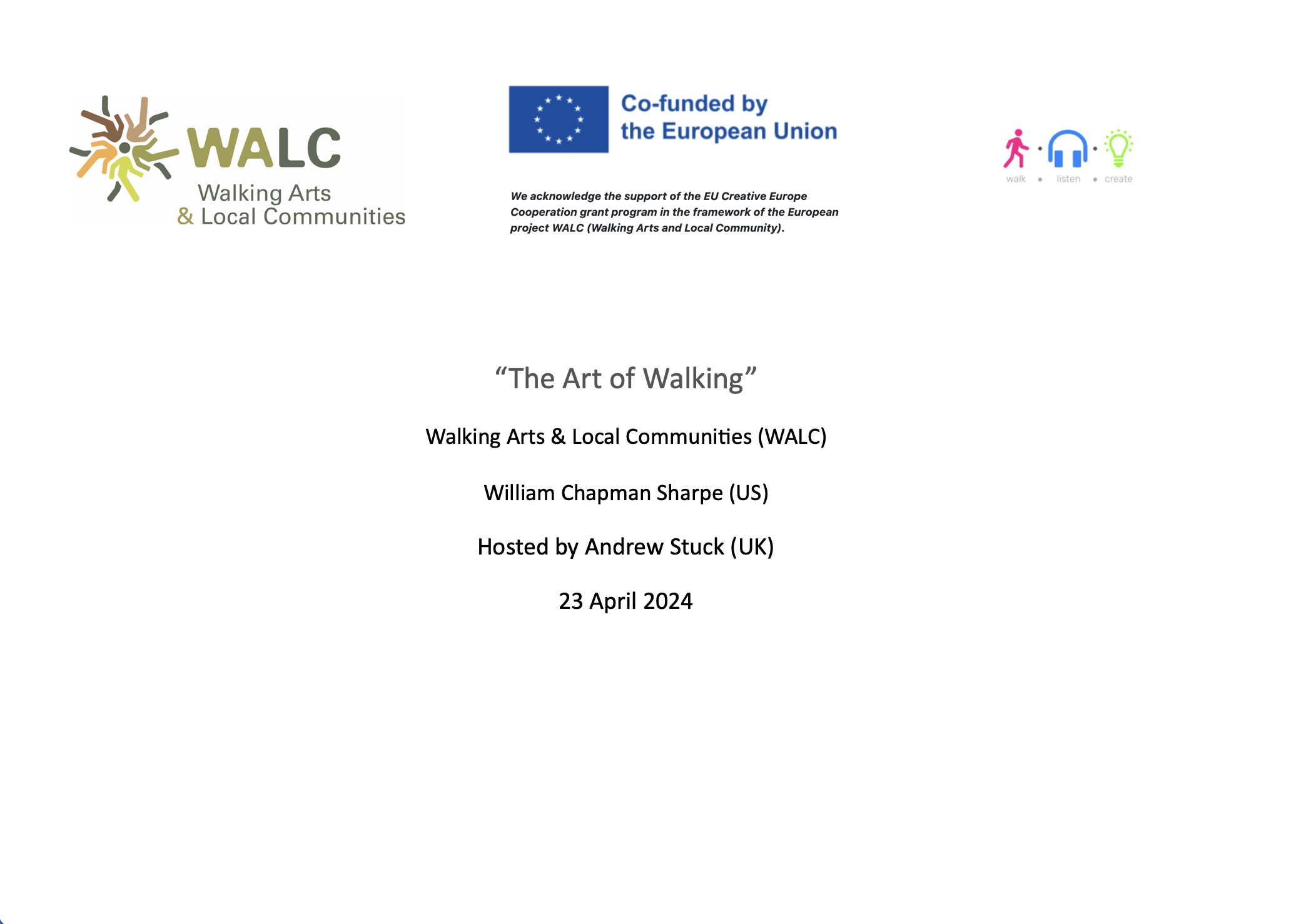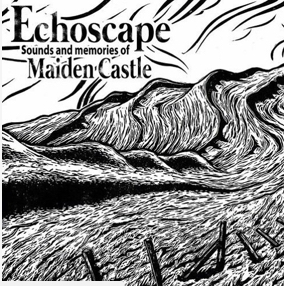We are delighted to have William Sharpe join us as our Café guest. This time last year, his book on The Art of Walking: a history in 100 images was published to wide acclaim. So how did he come to choose which images best represented the art of walking, and what did he choose to leave out, and why?
What does a walk look like?
From cave art to contemporary performance, William Sharpe reveals that a depicted walk is always more than a matter of simple steps. Whether sculpted in stone, painted on a wall, or captured on film, each detail of gait and dress, each stride and gesture has a story to tell, for every aspect of walking is shaped by social practices and environmental conditions.
And what do we read into what we see?
From classical statues to the origins of cinema, from medieval pilgrimages to public parks and the first footsteps on the moon, walking has engendered a vast visual legacy intertwined with the path of Western art. The path includes Romantic nature-walkers and urban flâneurs, as well as protest marchers and cell-phone zombies. It features works by artists such as Botticelli, Raphael, Claude Monet, Norman Rockwell, Agnès Varda, Maya Lin, and Pope.L.
How have new ways of walking spurred new means of representation, and how has walking permeated our visual culture?

When booking your ticket, take a moment to bring your walk · listen · create profile is up to date, or add a bio to create one if you haven’t already. To keep up to date with the Walking Arts and Local Communities over its four year duration, make sure you are subscribing to the weekly walk · listen · create newsletter.
Free concessionary tickets are available – if you cannot afford the ticket price please contact us below:
Featured image: Sleepwalker, 2014 by Tony Matelli – Painted bronze

Walking Arts & Local Communities (WALC) is an artistic cooperation project, co-funded by the European Union, Creative Europe, starting in January 2024 for four years. With seven partners from five countries, WALC establishes an International Center for Artistic Research and Practice of Walking Arts, in Prespa, Greece, at the border with Albania and North Macedonia, backed up by an online counterpart in the format of a digital platform for walking arts.
WALC builds on the previous work of hundreds of artists and researchers already practicing Walking Arts as a collaborative medium, and having met at the significant previous walking arts events and encounters in Greece, Portugal, Spain, France, Belgium, and during online activities at walk · listen · create.

We acknowledge the support of the EU Creative Europe Cooperation grant program in the framework of the European project WALC (Walking Arts and Local Community).
Funded by the European Union. Views and opinions expressed are however those of the author(s) only and do not necessarily reflect those of the European Union or the European Education and Culture Executive Agency (EACEA). Neither the European Union nor EACEA can be held responsible for them.
| Video recording |
Related

The Art of Walking: a history in 100 images
A lively and thought-provoking tour of the intertwined histories of art and walking “A broad-ranging book [that] has something for every rambler.”―Benjamin Riley, New Criterion What does a walk look like? In the first book to trace the history of walking images from cave art to contemporary performance, William Chapman Sharpe reveals that a depicted walk is





One thought on “The Art of Walking”